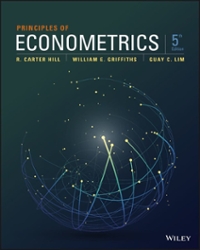A big question in the United States, a question of cause and effect, is whether mandatory health
Question:
A big question in the United States, a question of "cause and effect," is whether mandatory health care will really make Americans healthier. What is the role of hypothesis testing in such an investigation?
a. Formulate null and alternative hypotheses based on the question.
b. What is a Type I error in the context of this question? What factors would you consider if you were assigned the task of calculating the economic cost of a Type I error in this example?
c. What is a Type II error in the context of this question? What factors would you consider if you were assigned the task of calculating the economic cost of a Type II error in this example?
d. If we observe that individuals who have health insurance are in fact healthier, does this prove that we should have mandatory health care?
e. There is a saying, "Correlation does not imply causation." How might this saying relate to part (d)?
f. Post hoc ergo propter hoc (Latin: "after this, therefore because of this") is a logical fallacy discussed widely in Principles of Economics textbooks. An example might be "A rooster crows and then the sun appears, thus the crowing rooster causes the sun to rise." How might this fallacy relate to the observation in part (d)?
Step by Step Answer:

Principles Of Econometrics
ISBN: 9781118452271
5th Edition
Authors: R Carter Hill, William E Griffiths, Guay C Lim





